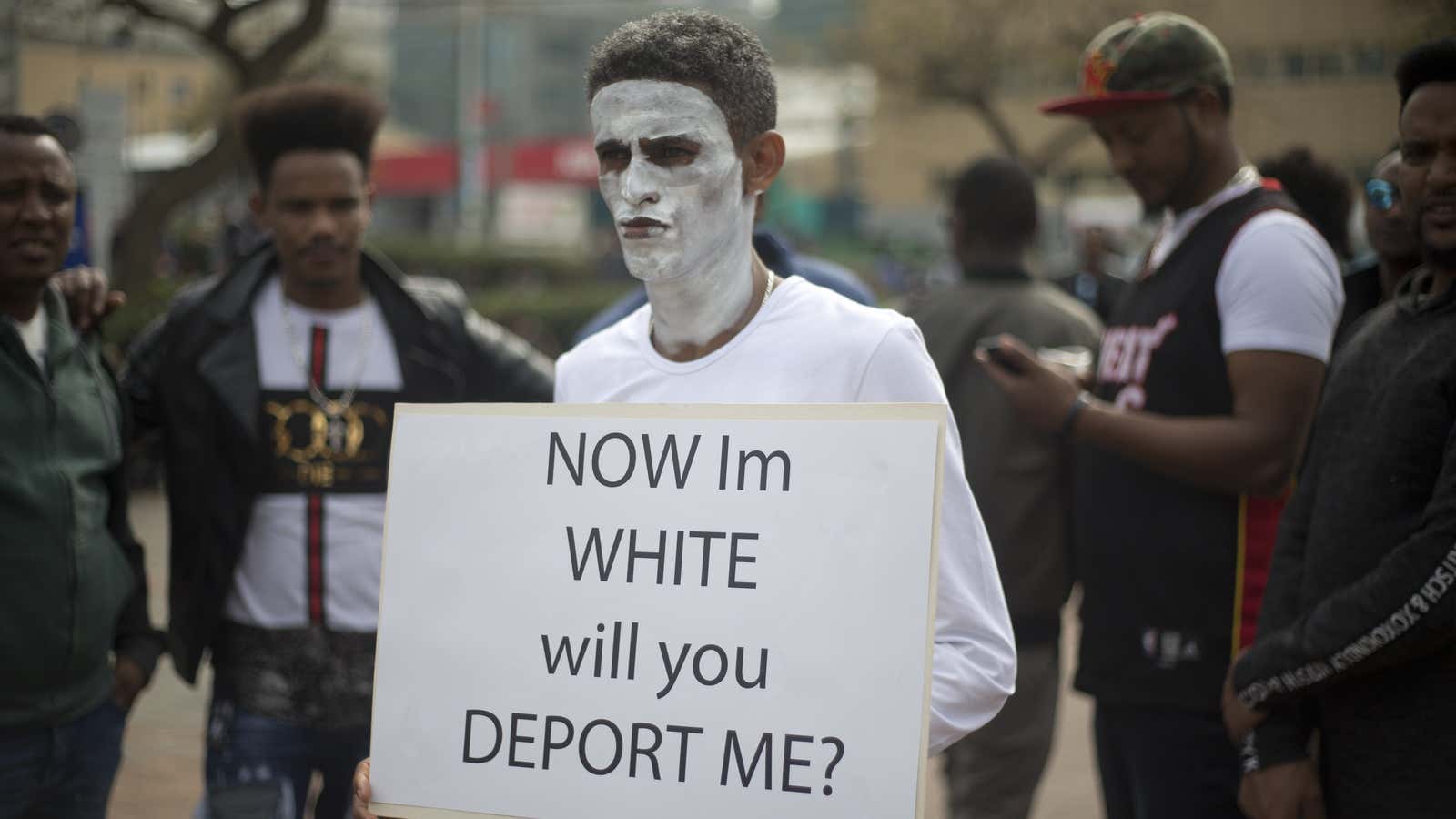Israeli prime minister Benjamin Netanyahu has backtracked on a joint decision with the United Nations refugee agency to resettle African migrants.
The deal, which would have sent roughly half of the African migrants currently living in Israel to other Western nations and allowed the rest to remain, was suspended after it angered long-time Israeli residents of south Tel Aviv, where many migrants have congregated over the years. Netanyahu also blamed the US-based liberal advocacy group New Israel Fund and “elements” in the European Union for pressing Rwanda to reject the government’s proposed resettlement of African migrants in the country.
Israel had said in January it would pay the migrants $3,500 to go home or to a “third” country. Even though the government didn’t specify where the refugees would go, immigrant rights groups said the countries in question were Rwanda and Uganda.
Admitting there was a plan in the works to deport migrants to Rwanda was a major reversal of previous Israeli official stance. Rwanda, along with Uganda, had repeatedly denied getting into an agreement with Israel—even though both said they would welcome migrants if they arrived. Netanyahu said he sought to resolve the matter through the UN after the deal with Rwanda was derailed.
“From the moment in the past few weeks that it became clear that the third country as an option doesn’t exist, we basically entered a trap where all of them would remain,” he said, according to the Associated Press.
However, Rwanda’s minister of state for foreign affairs, Olivier Nduhungirehe denied that there was ever a deal with Israel. The New Israel Fund also called Netanyahu’s accusations “pathetic.”
The reversal comes barely a day after Netanyahu announced the landmark agreement, which would have relocated roughly half of the 35,000 Eritrean and Sudanese migrants in the country to Europe, Canada, and the United States. The rest would have been granted legal residency and provided with job opportunities in Israel. Netanyahu said in a Facebook post today his administration will continue “looking for more solutions.”
The decision to freeze the deal also dampens the expectations of the migrants who hoped their problems would be over. In Israel, officials have labeled them “infiltrators,” arrested them, denied them work permits, and promised to deport them by April 1 if they refused to sign up for the expulsion program.
Even those who took on the “voluntary departure” agreement and went to the East African nations continued to face extortion, threats, imprisonment, and death.
A coalition of human rights groups, including Amnesty International-Israel, said authorities were “playing political games on the backs of the weakest populations,” adding that Israel “has proven once again that it does not serve the interests of its citizens, including the residents of South Tel Aviv, neither any moral, legal or international commitments.”
